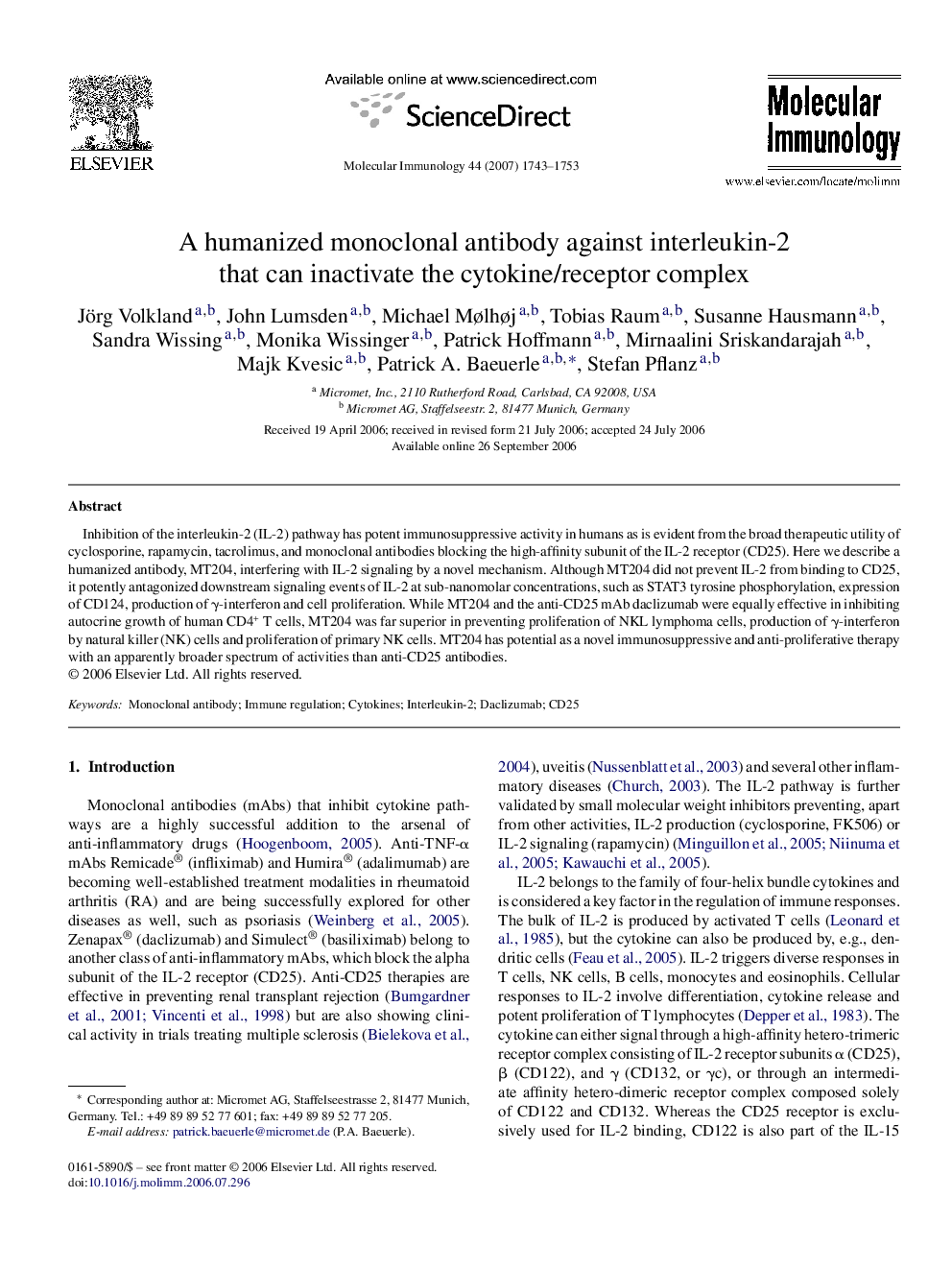| Article ID | Journal | Published Year | Pages | File Type |
|---|---|---|---|---|
| 2833365 | Molecular Immunology | 2007 | 11 Pages |
Abstract
Inhibition of the interleukin-2 (IL-2) pathway has potent immunosuppressive activity in humans as is evident from the broad therapeutic utility of cyclosporine, rapamycin, tacrolimus, and monoclonal antibodies blocking the high-affinity subunit of the IL-2 receptor (CD25). Here we describe a humanized antibody, MT204, interfering with IL-2 signaling by a novel mechanism. Although MT204 did not prevent IL-2 from binding to CD25, it potently antagonized downstream signaling events of IL-2 at sub-nanomolar concentrations, such as STAT3 tyrosine phosphorylation, expression of CD124, production of γ-interferon and cell proliferation. While MT204 and the anti-CD25 mAb daclizumab were equally effective in inhibiting autocrine growth of human CD4+ T cells, MT204 was far superior in preventing proliferation of NKL lymphoma cells, production of γ-interferon by natural killer (NK) cells and proliferation of primary NK cells. MT204 has potential as a novel immunosuppressive and anti-proliferative therapy with an apparently broader spectrum of activities than anti-CD25 antibodies.
Related Topics
Life Sciences
Biochemistry, Genetics and Molecular Biology
Molecular Biology
Authors
Jörg Volkland, John Lumsden, Michael Mølhøj, Tobias Raum, Susanne Hausmann, Sandra Wissing, Monika Wissinger, Patrick Hoffmann, Mirnaalini Sriskandarajah, Majk Kvesic, Patrick A. Baeuerle, Stefan Pflanz,
